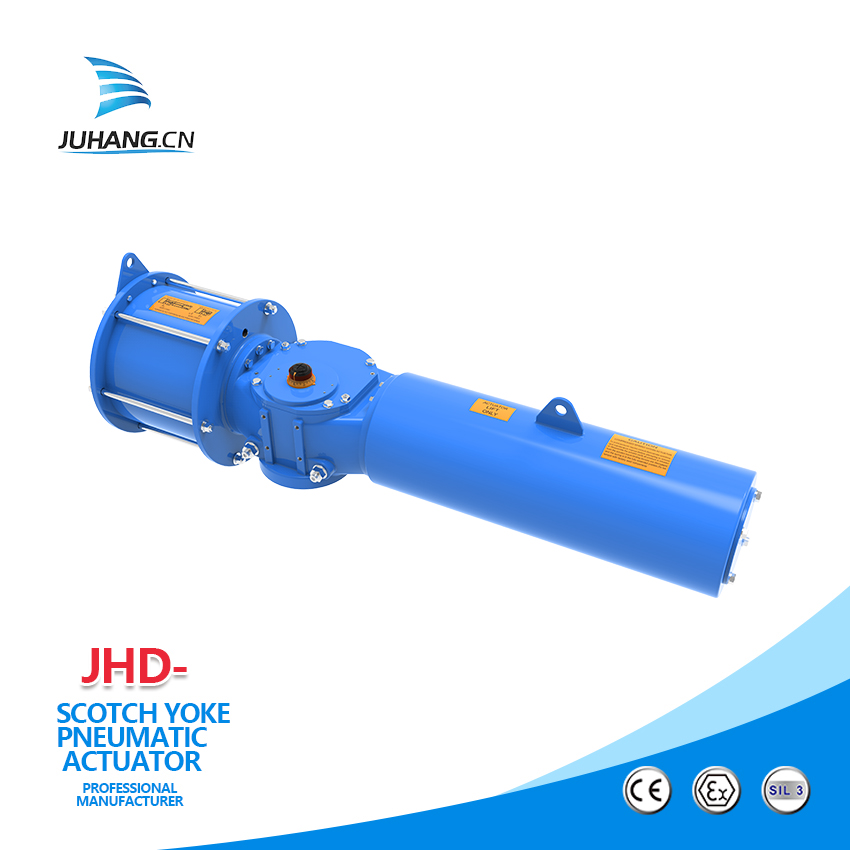Are there any specific application considerations or limitations when using this type of actuator?
2023-10-17
There are some specific application considerations and limitations when using Scotch Yoke Pneumatic Actuators. While these actuators offer many advantages, it's essential to be aware of their limitations to ensure proper selection and successful implementation in a given application. Here are some key considerations and limitations:
1. Control Precision: While the Scotch Yoke mechanism provides smooth and precise control, it may not be as suitable for applications that require extremely fine and accurate positioning. Other actuator types, such as electric or electro-pneumatic actuators, might offer higher levels of control precision for certain applications.
2. Air Supply Quality: The performance of pneumatic actuators, including Scotch Yoke actuators, can be influenced by the quality of the compressed air supply. Contaminants in the air, such as moisture or particulates, can adversely affect the actuator's operation. It's essential to ensure proper filtration and conditioning of the air supply to maintain optimal actuator performance and longevity.
3. Speed and Response Time: Scotch Yoke Pneumatic Actuators might have limitations in terms of speed and response time, particularly in high-cycle applications that require rapid actuation. In such cases, other actuator types like pneumatic diaphragm or piston actuators might offer faster response times.
4. Size and Weight: Larger Scotch Yoke Pneumatic Actuators might have considerable size and weight, which could be a limitation in applications with space constraints or where weight considerations are critical.
5. Energy Consumption: Pneumatic actuators, in general, require a continuous supply of compressed air, and this can result in higher energy consumption compared to electric actuators in certain scenarios. It's essential to consider the overall energy efficiency of the actuator system in relation to the specific application requirements.
6. Corrosive Environments: While some Scotch Yoke Pneumatic Actuators are designed for use in corrosive environments, others might require additional protection or coatings to withstand aggressive substances or conditions.
7. Operating Temperature Range: Extreme temperatures can impact the performance and longevity of pneumatic actuators. It's essential to ensure that the actuator is rated for the operating temperature range of the application environment.
8. Cyclic Applications: The cyclic nature of some applications, especially in heavy-duty industries, can impose additional wear and tear on the actuator's components. Regular maintenance and proper lubrication are crucial to ensure the actuator's reliability in high-cycling applications.
9. Cost Considerations: While Scotch Yoke Pneumatic Actuators offer advantages in many applications, their cost might be higher than some simpler actuators. It's important to balance the performance requirements with the budget constraints when selecting an actuator type.
As with any actuator selection, it's crucial to thoroughly evaluate the specific application requirements, environmental conditions, and performance expectations. Consulting with actuator manufacturers and engineering experts can provide valuable insights and assistance in choosing the most suitable actuator for a particular application.



